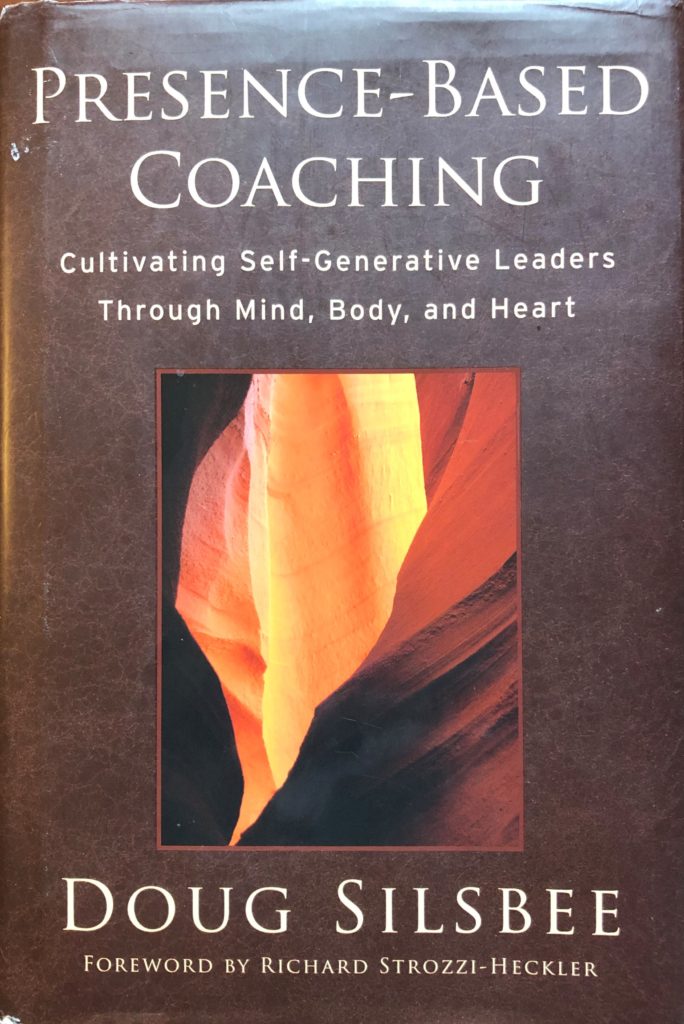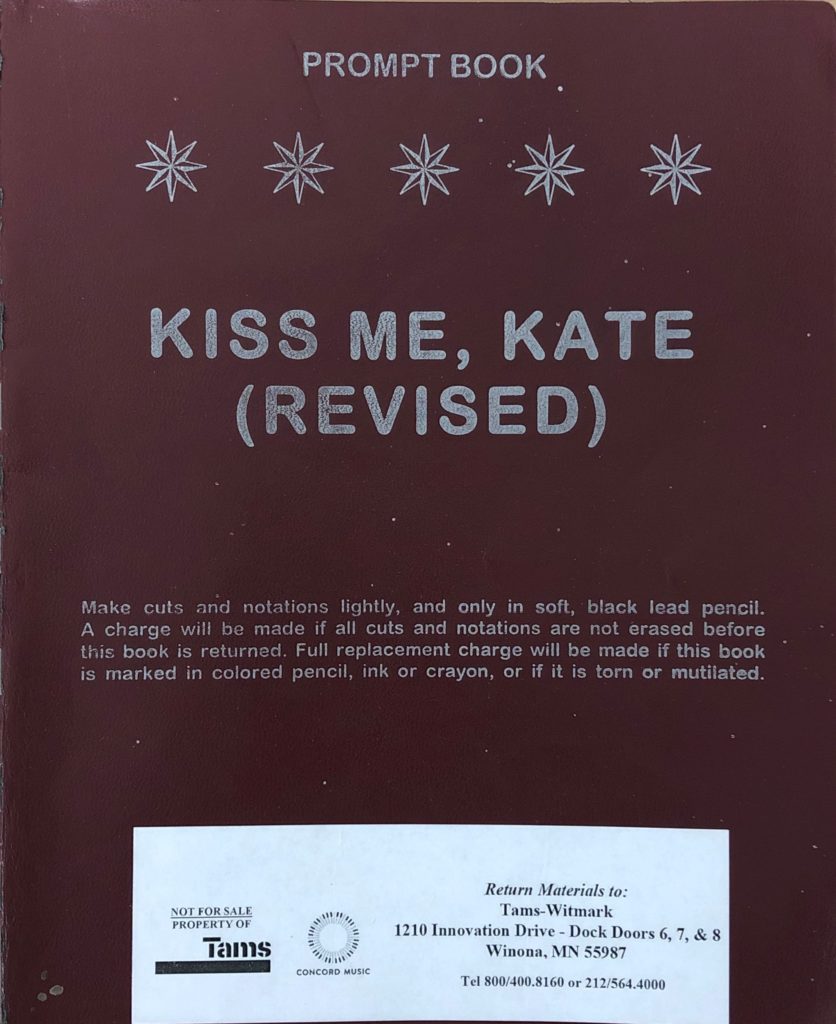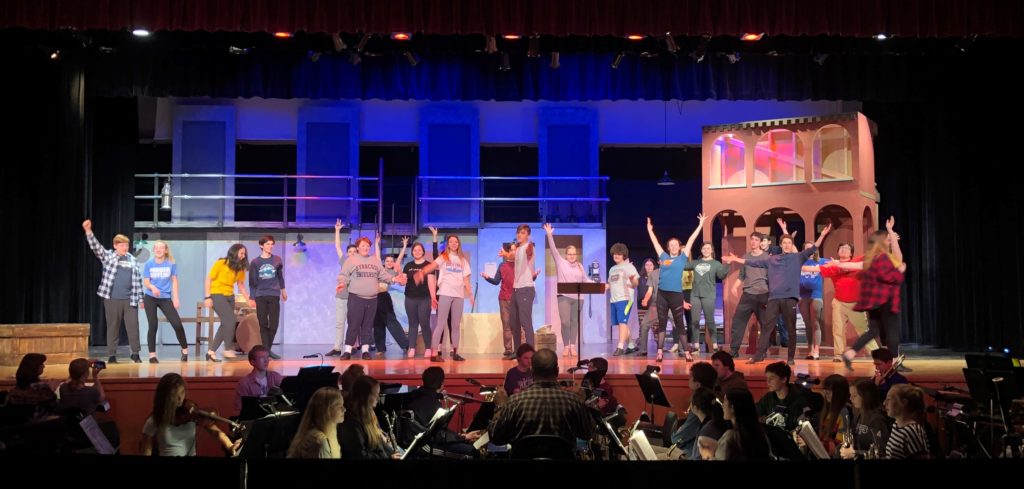“We first make our habits, and then our habits make us.”
John Dryden
“Another Op’nin, Another Show”
It’s that time of year here in Central New York – musical season. Each year it always amazes me how the talented and dedicated students and a team of directors turn books full of words and music into a vibrant and living theatrical experience. It is a truly remarkable and rewarding experience for all.
That being said – one habit I recently discovered is that if I am not careful, I can get caught up in my day to day teaching responsibilities and forget something fundamental to teaching: connecting with my students. I have found that if I’m not mindful and become too busy, I do not see the students grow and become more confident musicians and individuals.
Professional Reading –Presence-Based Coaching
Last summer, I read an exceptional book that influenced my personal life and transformed my teaching. It is titled Presence-Based Coaching: Cultivating Self-Generative Leaders through Mind, Body, and Heart. I started practicing several of its principals during my vacation in Ocean City, New Jersey, and now apply many of the same concepts in my teaching. Chapter two, How Humans Change: Conditioning, Identity, and Self-Generation is a must-read!

Self-Generation
The section on Self-Generation in chapter 2, gave me the skills needed to uncover my habits, and become more present and aware in the classroom. Silsbee (2008) breaks the process of Self-Generation down into four steps: Self-Observation, Realization, Reorganization, and Stabilization.
Self-Observation (p.51) – First, observe yourself in action – with no judgment.
- “I’m talking a lot.”
- “I’m rote teaching now.”
- “I’m modeling correct vowel placement now.”
Realization (p.52) – Next, become aware and label your habit.
- “I talk a lot during rehearsals.”
- “When rehearsing a new song, I do a lot of rote teaching.”
- “I model correct vowel placement a lot.”
Reorganization (p.54) – Now notice this habit when it occurs, and be aware of another possible choice.
- “I could talk less and have the students sing more.”
- “I could have the students focus more on music reading techniques.”
- “I can ask a student or section to model correct vowel placement.”
Stabilization (p.55) – Lastly, integrate this new choice into your teaching.
- “I will talk less, and have the students sing more during rehearsals.”
- “I will initiate new strategies to help the students become better readers.”
- “I will ask a student or section to model correct vowel placement.”
This four-step process takes some time and practice, but I assure you, it will strengthen your relationships with your students and transform your teaching. For example, during the first full run of our musical last week, several students had questions and concerns with some challenging music. When they approached me, I was also working on my list of issues and concerns. In the past, I would try to address many problems at the same time, and not give my full attention to either – a bad habit.
By using Self-Generation techniques, I now focus on one task at a time. When a student comes to me for help or has a question/concern, I will stop what I am doing and give the student my full attention. If, at that moment, I have another issue I must address first, I will communicate this to the student, restate their concern, and make a plan to meet with them and discuss their question/concern soon.
“Self-Generation is the capacity to be present and a learner in all of life in order to make choices from the inner state of greatest possible awareness and resourcefulness.”
Presence-Based Coaching (p.50)
This year I also discovered a bad habit I have while teaching. Many times during rehearsals, I become so focused on my rehearsal plan and the tasks at hand that I forget to tell the ensemble what and why we are focusing on a specific concept or skill. I know the plan/purpose, but they do not. I now call it the “read my mind” syndrome. It is the ‘I teach, you learn” mentality. This philosophy of teaching does not answer our original question, but it does begin to point us in the right direction.
How do I actively engage students in lifelong music learning and participation?
By becoming aware of our habits in the classroom.
Conclusion: Self-Generalization
Self-Generalization is a tool we can use to discover and label our habits while teaching and working with others. The four-step process of Self-Observation, Realization, Reorganization, and Stabilization allows us in a non-judgmental way to discover, label, choose and initiate a new responses while teaching.
Google Meet
Our next online meeting will be held on Sunday, March 8 at 5:00 PM Eastern Standard Time, and will last for about a half an hour. If you are interested, you can email me at brianoackles@gmail.com or use the link below to join the meeting.
https://meet.google.com/xjn-okdm-ebd?hs=122
References:
Silsbee, Douglas K., and Richard Strozzi-Heckler. Presence-Based Coaching: Cultivating Self-Generative Leaders through Mind, Body, and Heart. San Francisco, CA: Jossey-Bass, 2008.
Ackles, Brian O., 2018. Agile Development Instructional Framework (ADIF): A New Strategy for Student-Centered Music Education. Choral Journal, September 2018. Vol. 59, No. 2
Marcellus High School Select Choir




Leave a Reply
You must be logged in to post a comment.